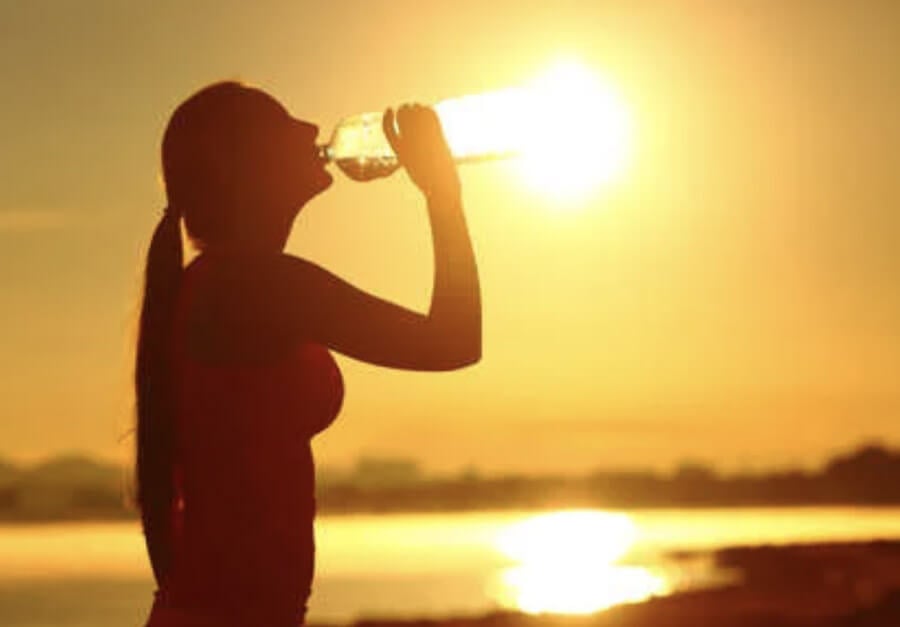What Causes Dehydration?

Introduction to what causes dehydration
Here we discuss the process and causes of dehydration.
Definition: Dehydration means loss of water from the body. Your body also loses salt through excretion.
Loss of water is always accompanied by a loss of electrolytes, as water within the plasma is enriched with many electrolytes that are constantly in a state of flux. Effect of dehydration on the body are experienced due to a loss of both water and electrolytes, and dehydration effects on your body can be mild or severe based on the duration and extent of the dehydrated state. How quickly and efficiently one rehydrates largely determines the severity of these symptoms.
What causes dehydration?
Generally dehydration happens during or after prolonged physical activity, or when the weather is warm or humid. Sweating is your body’s protective mechanism whereby loss of water keeps the body cool and prevents from overheating. Loss of water through sweat glands is accompanied by a loss of sodium as well. An equivalent loss of sodium and water allows the body to maintain its blood osmolality (or thickness) within a range without big changes that can be detrimental. As the osmolality rises, it stimulates the thirst center in the brain, allowing an individual to rehydrate quickly by consuming water. This drops the osmolality back to normal and the thirst dissipates. This dehydration-thirst-rehydration is a common physiological change that happens within the human body almost every single day. Symptoms of dehydration are, hence, felt periodically, even among individuals in good health.
Exercise causes dehydration: Loss of fluid and electrolytes is universal in all people during rigorous physical activity. Dehydration can worsen if the individual does not rehydrate quickly as the fluid and electrolyte losses continue. Temperature, humidity, activity and body type all dictate the hydration status of an individual, particularly if they fail to rehydrate quickly for long periods with the right electrolyte mix.
Vomiting & diarrhea dehydration: Which involves fluid and electrolyte losses through gastrointestinal tract. This is a one of the more common “pathological” ways reason to get dehydrated- children with cholera in developing countries used to be so dehydrated, it eventually led to the birth of oral rehydration solution (ORS).
Occupation-related causes dehydration: Firefighters face this challenge while working in very hot conditions as they struggle on how to stay hydrated due to a constant loss of fluids due to environmental conditions. Similarly, construction workers or those who spend extended amounts of time outdoors in the summer heat can get dehydrated significantly.
Dehydration from medication: Medications such as diuretics, can result in dehydration effects on your body. Regular use of these medications can lead to more fluid loss than gained and needs to be discussed with a medical professional.
Alcohol causes dehydration: Alcohol is a dehydrating agent and individuals who wake up with hangovers are depleted in water and electrolytes. This is the reason the best drinks recommended to treat a hangover are water enriched with electrolytes including magnesium. Magnesium is one of the electrolytes that helps to quickly rehydrate.
Flu dehydration: This is a common cause of mild dehydration in young adults.
In all the above conditions cause dehydration, the common denominator is a significant loss of fluid from the body.
Initially, this fluid is derived from the blood volume (since almost 60% of the blood is plasma). If the body doesn’t get a fresh supply in time dehydration continues, the fluid from within the cells (intra-cellular fluid) may be lost.
50-60% of human body weight is water. An average man weighing 155 lbs has about 10.5 gallons of total body water (TBW). Despite such a large volume of fluid reserve, a liter of water loss from the body can lead to significant symptoms of the dehydration effects on your body.
How to hydrate after suffering dehydration
The best way to avoid dehydration is to stay well hydrated with water and electrolytes if available. Frequently, it is challenging to judge the exact amount of fluid loss to replace quickly, particularly during an ongoing physical activity. Most professional athletes are not be able to gauge their fluid or electrolyte losses during endurance activities despite significant prior experience. This is because, even within an individual, the extent of dehydration varies by day, conditions and other factors. In order to quickly rehydrate after exercise you can use the following formula:
Total loss in body weight (or % of it) before and after exercise as a measure of need for fluid replacement (e.g., if the athlete’s weight drops by 2.2lb after a workout, it would mean a replacement volume of at least 1 liter to maintain a normal hydration status, since 1 Liter of water weighs 2.2lb). This formula is great for recovering after your exercise but it is less useful during an actual race where the fluid losses are more dynamic and evolving in real time; and there is rapid change in the fluid status due to loss and rehydration.